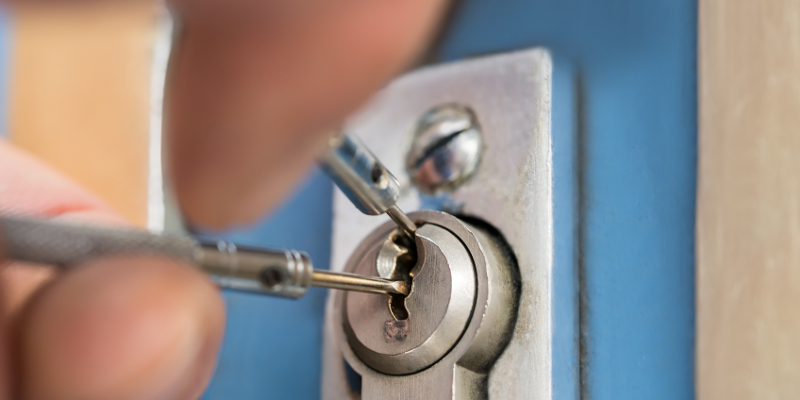Electronic locks have emerged as a revolutionary solution in the realm of home security. Many homeowners and renters are discovering the myriad benefits of these advanced security systems, particularly in relation to minimizing instances of lockouts. Electronic locks, also known as smart locks, have considerably reduced the frequency of lockouts, thereby enhancing convenience and security for users.
One common issue that people face is getting locked out of their homes, which can be a frustrating and stressful experience. By understanding how electronic locks help reduce lockouts, individuals can make informed decisions about incorporating these systems into their homes.

What Are Electronic Locks?
Electronic locks utilize digital mechanisms to secure access to a property. Unlike traditional locks that require a physical key, electronic locks often require a code, fingerprint, or smartphone application for operation. This keyless approach offers added security and convenience, particularly in high-stress lockout situations.
The Technology Behind Electronic Locks
The technology embedded in electronic locks makes them superior to traditional locks in multiple ways. These smart locks are equipped with features such as biometric scanning, remote access, and integration with home automation systems. By leveraging technology, electronic locks provide numerous advantages to users, particularly homeowners and renters who are prone to misplacing keys or forgetting them indoors.
Advantages of Electronic Locks in Reducing Lockouts
Keyless Entry: A Major Benefit
Keyless entry systems, including keypad locks and smart locks with smartphone access, play a crucial role in preventing lockouts. Users can easily access their homes without the need for a physical key, thus eliminating the risk of key loss. Additionally, this feature offers convenience during emergencies or when holding heavy items and needing hands-free access.
Improved Access Control
Electronic locks provide excellent access control, allowing homeowners to regulate who can enter their property. By assigning unique access codes or digital keys to family members or trusted friends, homeowners can avoid unwarranted lockouts and ensure enhanced security for their property.
Remote Access and Monitoring
The ability to manage and monitor locks remotely is another significant advantage of electronic locks. Through a smartphone application, users can unlock doors, check access history, and receive notifications about lock status while away from home. This feature not only improves convenience but also ensures peace of mind for homeowners.
The Role of Connectivity in Electronic Locks
Integration with Smart Home Systems
By integrating with smart home systems, electronic locks offer seamless connectivity with other security devices and home automation solutions. This synchronized operation enhances the user experience and contributes significantly to reducing incidents of lockouts.
Enhancing Security with Electronic Locks
Beyond lockouts, electronic locks play a crucial role in enhancing home security. The digital security systems associated with smart locks are more robust than traditional counterparts. Through features like encryption and secure access protocols, electronic locks provide unparalleled protection against unauthorized access attempts.
Protecting Against Physical Tampering
Conventional locks are susceptible to picking and other physical manipulation tactics. Because electronic locks rely on digital codes or biometric data, they are significantly less vulnerable to these types of breaches, providing homeowners with enhanced security and reducing the potential for unintended lockouts.
Choosing the Right Electronic Lock
When selecting an electronic lock for your home, consider factors such as security features, connectivity, and ease of use. It’s also important to evaluate compatibility with your existing door structure and any other smart systems you may have in place.
External Resources
To learn more about choosing the right electronic lock and enhancing security, you can visit choosing the right lock.

Electronic Locks: A Shift Towards Smarter Living
Adopting electronic locks represents a shift towards smarter living. As more individuals understand how electronic locks help reduce lockouts, it becomes evident that their integration into home security systems is not just a convenience but a necessity. Users can benefit from enhanced safety, remote access, and peace of mind, elevating the overall homeownership experience.
Frequent Questions
- Q: Are electronic locks safe? A: Yes, electronic locks incorporate advanced security features such as encryption and secure access codes, making them a safe choice for securing homes.
- Q: Can electronic locks be hacked? A: While no security system is entirely immune, electronic locks are designed with advanced safeguards that minimize hacking risks.
- Q: What happens if the electronic lock’s battery dies? A: Most electronic locks provide warning signs before the battery is completely drained, and many come with backup key access or external charging options.
For local assistance and tips on dealing with lockouts, visit service availability or explore best office lockout checklist. Additionally, learn how to handle an office lockout for comprehensive guidance.
This article contains affiliate links. We may earn a commission at no extra cost to you.





